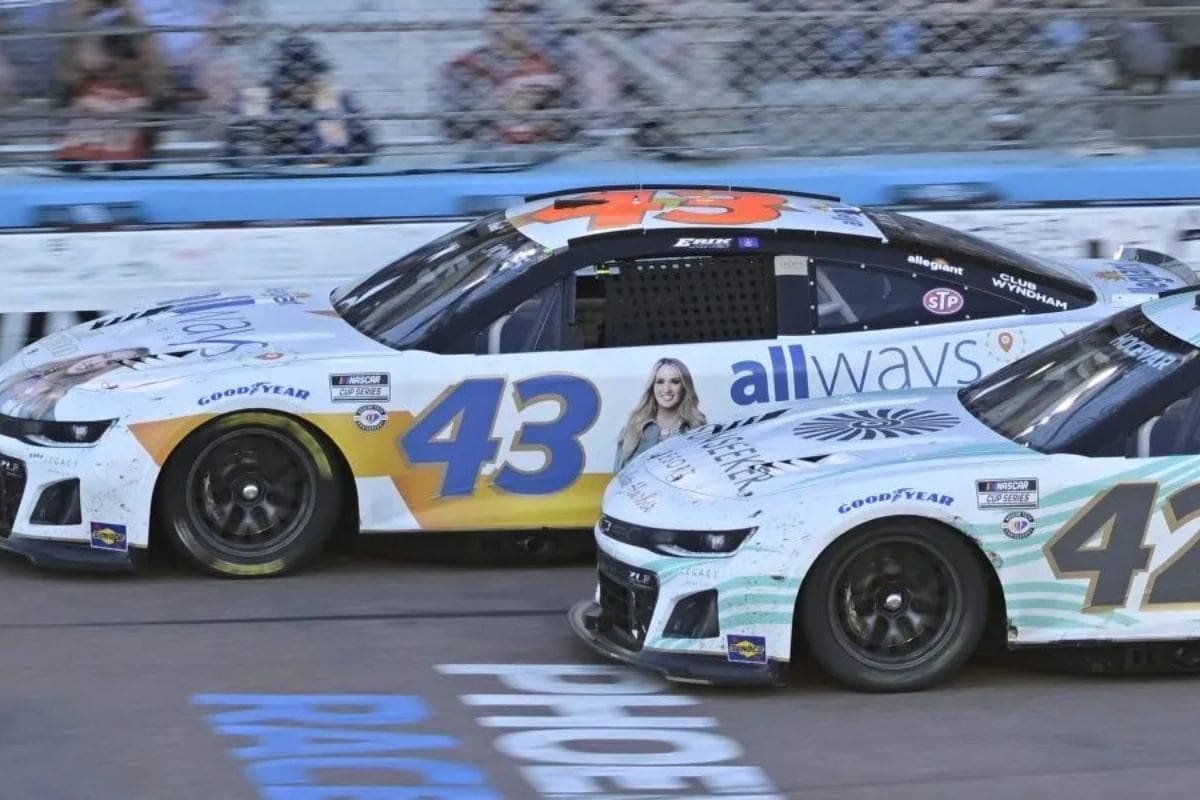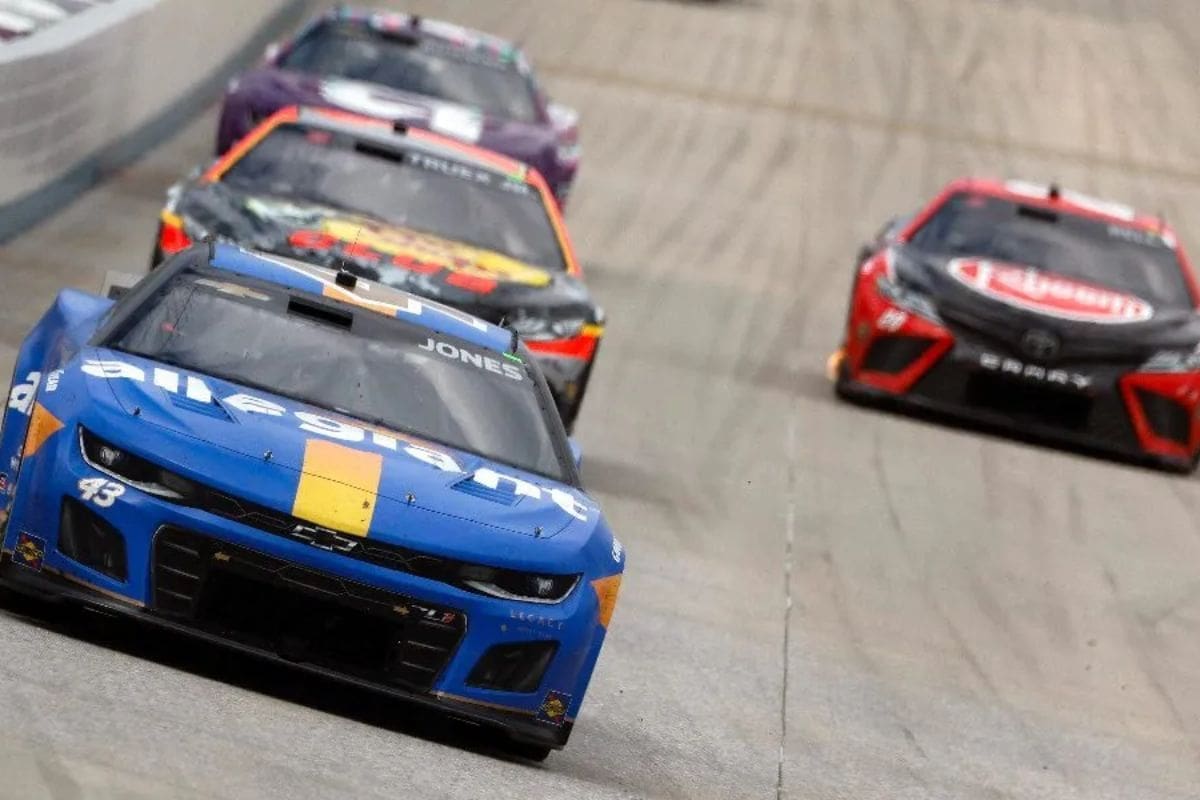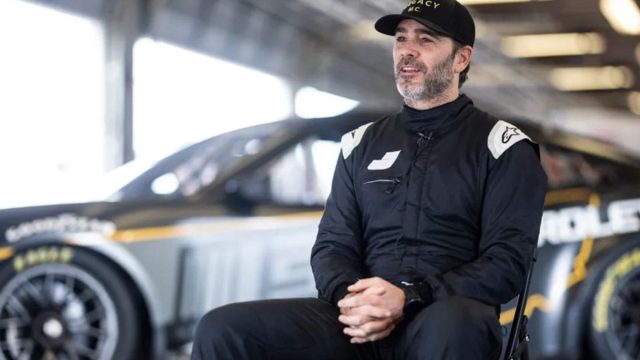Legacy Motor Club’s Drastic Changes: Legacy Motor Club, despite high expectations following its 2023 rebranding and the involvement of racing icons Richard Petty and Jimmie Johnson, has found itself in the midst of a challenging NASCAR season. The team’s struggles have prompted a series of key realignments, including new alliances with Toyota and important internal restructuring aimed at reinforcing driver performance and operational efficiency. These moves highlight a dedicated effort to transform adversity into opportunity. However, the question remains: will these changes be enough to steer the club back on track and fulfill its ambitious vision?
Key Highlights
- Legacy Motor Club rebranded in 2023, backed by Richard Petty and Jimmie Johnson, but faced persistent performance struggles.
- Shift to Toyota and ‘Tier One’ alliance failed to deliver the anticipated competitive advantage.
- Organizational changes included promoting Bobby Kennedy and relieving Joey Cohen to bring new strategic perspectives.
- Securing sponsorships from Dollar Tree and Family Dollar aimed to strengthen the financial base for future improvements.
- Drivers John Hunter Nemechek and Erik Jones faced performance issues due to equipment reliability and team cohesion challenges.
Legacy Motor Club: From Promise to Struggle
Despite initial high hopes fueled by its rebranding and the inclusion of Jimmie Johnson, Legacy Motor Club has experienced a turbulent journey marked by notable challenges and underperformance. The rebrand from Petty GMS Racing to Legacy Motor Club in 2023 was seen as a strategic move to rejuvenate the team’s image and performance in the Cup Series. With the backing of the legendary Richard Petty and the arrival of seven-time NASCAR Cup Series champion Jimmie Johnson as a driver-owner, the organization seemed poised for a revival.
Upon its inception, Legacy Motor Club carried the weight of both its storied heritage and the fresh promise of its new identity. The racing community and fans alike anticipated a resurgence, driven by the expertise and star power of Johnson. The rebranding effort was not merely cosmetic but also a declaration of intent, signaling a commitment to innovation, competitiveness, and a return to the upper echelons of NASCAR racing.
However, the performance metrics have fallen short of expectations, with the team struggling to secure top-tier finishes. This underperformance has been a striking contrast to the optimism that surrounded the rebranding. The placement of high hopes and disappointing results has led to scrutiny from analysts and fans, who are eager to understand the root causes and potential solutions.

Challenges Faced by Legacy Motor Club
The challenges faced by Legacy Motor Club are multifaceted, stemming from a combination of high expectations, calculated risks such as the shift from Chevrolet to Toyota, and persistent performance issues that have hindered the team’s progress. The presence of two 7-time Cup Series champions as team owners initially raised expectations to incredibly high levels. However, the switch to Toyota, aimed at revitalizing the team, has not produced the expected improvements, leaving the organization in urgent need of a transformation.
Performance issues have been particularly notable, with the team failing to find the stability necessary for sustained success. The shift to Toyota has not been without its complexities. Adapting to a new manufacturer involves a steep learning curve, and the team has struggled to optimize its setups and plans under the new banner.
Moreover, the cohesion within the team has been tested as they adapt to new systems and personnel. The competitive landscape of NASCAR, with its relentless pace and high standards, has further compounded these challenges.
Strategic Moves and Structural Changes
Legacy Motor Club has undertaken a series of calculated maneuvers and structural adjustments aimed at reversing their recent challenges and establishing a more competitive presence in NASCAR.
A crucial element of this key shift was their decision to form a ‘Tier One’ alliance with Toyota. This transformation from Chevrolet to Toyota marks a notable change in the team’s technical and operational framework. The switch is not simply a shift in manufacturer; it signifies an alignment with one of the sport’s most successful and resource-rich entities, potentially providing Legacy Motor Club with the competitive edge it urgently requires.
In conjunction with the manufacturer switch, Jimmie Johnson has solidified his role as an owner, leveraging his extensive experience and industry connections to guide the team through this metamorphic phase. Johnson’s increased involvement is anticipated to bring a renewed emphasis on performance and a heightened level of operational excellence.
Moreover, the return of John Hunter Nemechek to the Cup Series is another tactical move that emphasizes the team’s dedication to infusing fresh talent. Nemechek, who has shown remarkable skill in the lower series, is positioned to bring both youthful vigor and competitive determination to the team, potentially resulting in improved on-track outcomes.

Furthermore, securing sponsorships from Dollar Tree and Family Dollar has strengthened the club’s financial base. These sponsorships not only provide crucial funding but also signify a vote of confidence from well-established brands, which could help attract additional corporate support in the future.
Internal Restructuring for Improvement
Internal reorganization at Legacy Motor Club has been guided by the need to address persistent performance issues and enhance team effectiveness. The team encountered significant challenges with the shift to next-gen vehicles, notably with the pedal box design, leading to discomfort and numbness for drivers due to heat and vibration.
In a strategic move to tackle these challenges, experienced crew chief Bobby Kennedy has been promoted to a pivotal role within the club. This advancement signifies a change in leadership dynamics, with former competition director Joey Cohen being relieved of his position. The leadership change aims to infuse fresh perspectives and strategies into the team’s operations.
“You have drivers getting numb – the backs of their legs were getting numb, their butt cheeks were getting numb. There was a lot more attachment going to the driver’s bodies from those areas.” – Cohen
- Leadership Adjustments: Bobby Kennedy’s promotion is anticipated to bring a wealth of expertise and a new strategic vision to the team, influencing both the operational and competitive aspects of Legacy Motor Club.
- Focus on Driver Comfort: Addressing the pedal box issue and its impact on driver performance remains a priority. The reorganization aims to ensure that these technical issues are resolved effectively, enhancing the overall driving experience.
- Partnership Enhancement: Strengthening the collaboration with Toyota is essential. Continuous partnership with Toyota aims to utilize their technical knowledge to address ongoing issues and enhance vehicle performance.
Driver Performance and Future Prospects
Evaluating the impact of recent organizational changes, it is crucial to analyze how they might influence the performance and future prospects of drivers John Hunter Nemechek and Erik Jones. With Bobby Kennedy assuming the role of general manager and Joey Cohen’s departure, the dynamics within Legacy Motor Club are poised for a notable shift. Both drivers are undeniably talented, but their potential has frequently been hindered by machinery and inconsistent team performance.
Some changes at Legacy: Bobby Kennedy, who has been in the sport for decades as crew chief and other competition roles, is now general manager. Competition director Joey Cohen no longer with the team.
— Bob Pockrass (@bobpockrass) July 14, 2024
John Hunter Nemechek, known for his versatility and competitive spirit, has shown flashes of brilliance but has often been hampered by unreliable equipment. The introduction of Bobby Kennedy as general manager could bring a renewal of strategic direction and resources, potentially enhancing Nemechek’s performance. However, expecting an immediate turnaround would be overly optimistic.
Erik Jones, with his extensive experience and technical proficiency, faces a different set of challenges. His performance has been inconsistent, largely due to lapses in team cohesion and tactical execution. The departure of Joey Cohen, who played a critical role as competition director, leaves a gap that must be swiftly and effectively filled to stabilize team operations. If Kennedy can foster a more unified and strategically sound environment, Jones might finally find the platform he needs to consistently demonstrate his capabilities.

News in Brief: Legacy Motor Club’s Drastic Changes
Legacy Motor Club’s progression from renewed hope to ongoing hurdles emphasizes the intricacies of competitive motorsport. Despite initial obstacles, calculated partnerships with Toyota, improvements in driver accommodations, and pivotal personnel advancements showcase a proactive approach to conquering challenges.
This phase of evolution highlights the team’s commitment to nurturing long-term growth and competitiveness. The continuous structural changes and emphasis on driver excellence demonstrate a dedication to building a strong base for future triumph in the NASCAR circuit.
ALSO READ: Legacy Motor Club Teams up With Massey Motor Freight in Major Deal
